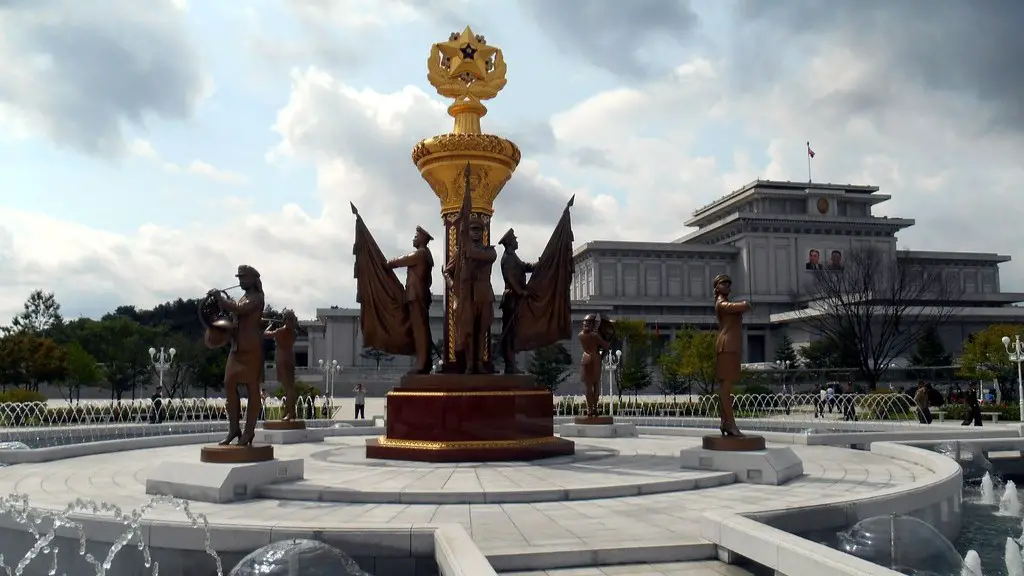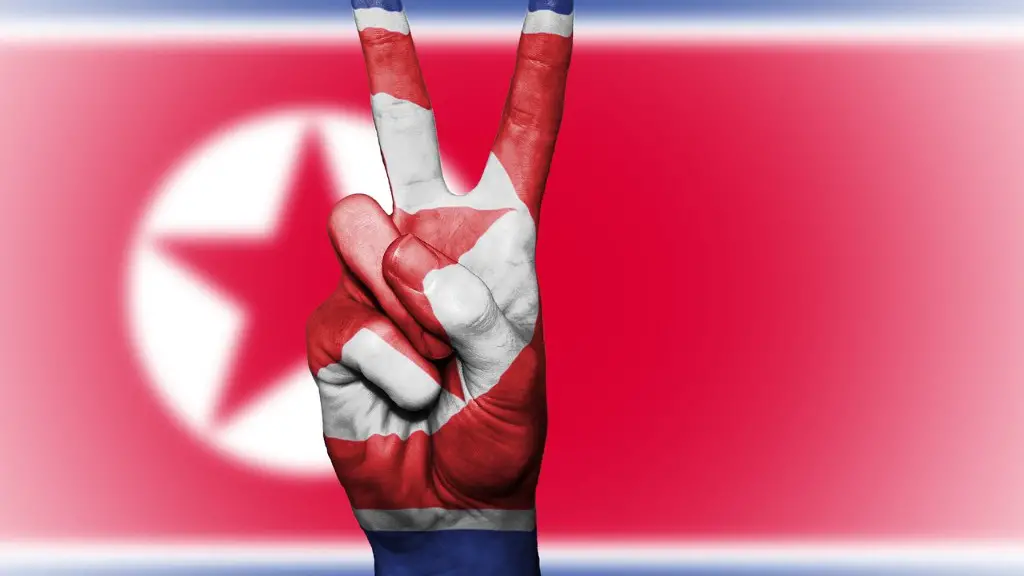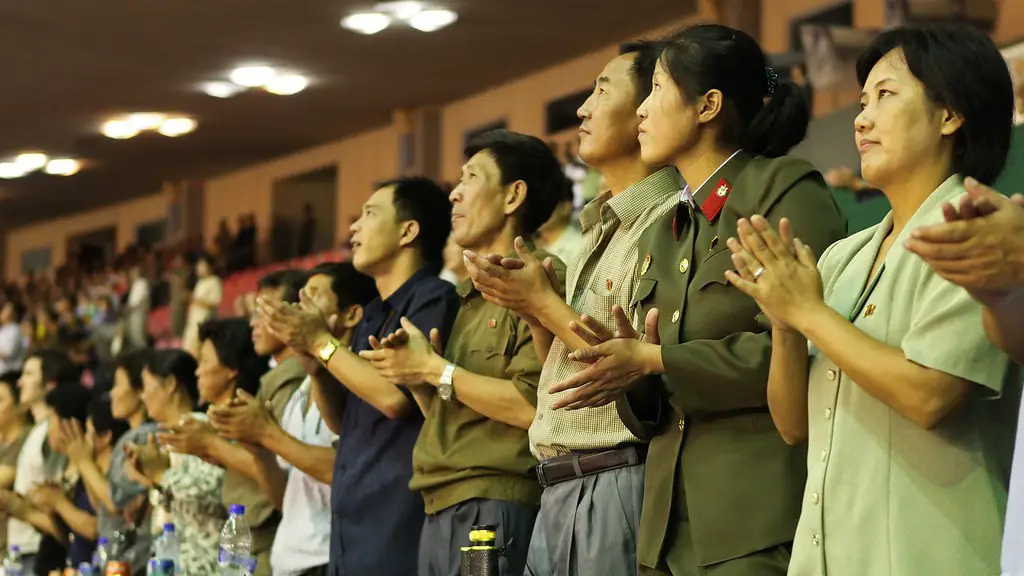The North Korean Nuclear Arsenal
North Korea is believed to possess an operational nuclear arsenal and has tested four nuclear weapons, most recently in September of 2017. In addition to the nuclear weapons, the country is reported to have an extensive chemical and biological weapons stock pile. According to assessments by the US Defense Intelligence Agency (DIA) and international experts, North Korea does indeed possess nuclear-armed ballistic missiles capable of striking targets in South Korea and Japan, and potentially beyond. The United Nations confirms that North Korea is banned from conducting nuclear testing and ballistic missile activities, but the country still has managed to develop an operational nuclear arsenal despite these restrictions. In response, a number of countries, including the United States, South Korea, and Japan, as well as the United Nations, have imposed sanctions on North Korea for its nuclear weapons program.
North Korea’s Motivation for an Attack
The motivations for a North Korean attack on the United States remain a mystery. It seems unlikely that the regime of Kim Jong-un is suicidal in its actions, and it is difficult to imagine a scenario in which North Korea would gain anything from such an attack. North Korean leaders may be motivated by a desire to protect their regime and prove its legitimacy, as well as to demonstrate their own strength and resolve by attacking a perceived adversary. It is also possible that North Korea is playing a game of brinkmanship in order to secure concessions from threats of violence and nuclear attack. Regardless of the motives, it is clear that such an attack would be disastrous for the United States, for East Asia, and for the world.
The US Response
In response to the threat posed by North Korea, the United States has taken several steps to increase its own security and deter a possible attack. The US has bolstered its forces in the Pacific region and boosted its defensive capabilities, particularly missile defense systems. It has also increased its economic, diplomatic, and military pressure on the North Korean regime. President Donald Trump stated that “all options are on the table” when it comes to dealing with North Korea, and in 2017, the United Nations Security Council unanimously voted to impose strong economic and diplomatic sanctions on North Korea.
What are North Korea’s Goals?
It is uncertain what North Korea’s ultimate goal is in the standoff with the United States, and it is possible that Kim Jong-un is simply playing a game of brinkmanship in order to secure concessions and diplomatic recognition. On the other hand, some experts have speculated that North Korea has more ambitious goals, such as the reunification of the Korean peninsula and the establishment of a continental buffer zone. Regardless of North Korea’s goals, it is certain that the regime is taking steps to increase its military capabilities and that it is willing to use its weapons in order to achieve its goals.
International Reactions to the Threat
The international community has taken a very measured approach in its response to the threat posed by North Korea. Most countries have condemned North Korea’s nuclear activities and have pushed for negotiations to resolve the standoff. South Korea and Japan have also taken an active role in the negotiations, both diplomatically and economically. China, North Korea’s closest ally, has also taken action to reduce tensions by pressuring North Korea to end its nuclear activities.
Will North Korea Attack The US?
The prospect of a North Korean attack on the US is far from certain. The country does possess a nuclear arsenal and has tested four nuclear weapons, however, experts believe that a nuclear attack on the US is very unlikely. North Korea is not suicidal in its behavior and it is likely that their goal is to simply secure concessions through a game of brinkmanship. Furthermore, the US has bolstered its defenses and increased sanctions on North Korea in a bid to deter the country from launching an attack.
The US-North Korea Relations
The relationship between the United States and North Korea has been strained for years and has recently become even more tense due to North Korea’s escalating nuclear activities. The United States has taken several steps to increase its own security and has increased pressure on North Korea in the form of sanctions. In response, North Korea has continued to develop its nuclear capabilities and has launched a series of ballistic missile tests. The international community has taken a measured approach in its response and the majority of the world is calling for negotiations to resolve the standoff.
The Risks of a War
A war between the United States and North Korea would have dire consequences for both countries. Aside from the obvious human cost, a war would also have a crippling economic impact on both nations, as well as the global economy. A war could also spark an arms race in East Asia, prompting other countries in the region to develop their own nuclear arsenals. It is also unclear how the US would react if North Korea were to launch a non-nuclear attack, and the risks associated with a conventional attack are equally high.
The Human Cost
A war between the United States and North Korea would have devastating consequences for the people of both countries. The potential human cost of a war is difficult to quantify, but it is certain to be high. In addition to the death and destruction that would result from a military conflict, a war would also impact innocent civilians. A humanitarian crisis would also likely result, with millions of North Korean refugees seeking shelter in South Korea and beyond.
The Impact of Sanctions
The international community has imposed a number of sanctions on North Korea in a bid to pressure the country to end its nuclear program. These sanctions have targeted the North Korean economy, with targeted companies and individuals facing travel bans, asset freezes, and other measures. The primary goal of the sanctions is to pressure the North Korean government to end its nuclear activities, however, it is unclear if the sanctions are having a significant impact.
The Role of China
China is crucial to the resolution of the crisis on the Korean Peninsula. China is North Korea’s closest ally and is widely viewed as the country’s protector. China has taken active steps to reduce tension and pressure the North Korean regime to end its nuclear activities, however, it remains to be seen if the country will commit to more aggressive measures to resolve the crisis.
The Risk of Escalation
Any conflict between the United States and North Korea has the potential to rapidly escalate into a wider regional conflict. North Korea’s allies, particularly China and Russia, could become involved in the conflict if it were to break out, and the United States would need to be wary of any moves they make in response. Furthermore, any military conflict could also draw in other countries, such as South Korea and Japan, further escalating the situation.
The Possibility of Negotiations
There is still hope for a peaceful resolution to the crisis. Both the United States and North Korea have expressed a willingness to engage in negotiations, although it is not yet clear how such negotiations would proceed or what the outcomes might be. Negotiations could be used to reduce tensions and pave the way for a peaceful solution to the crisis, however, there is no guarantee of success and the risk of further escalation remains high.



